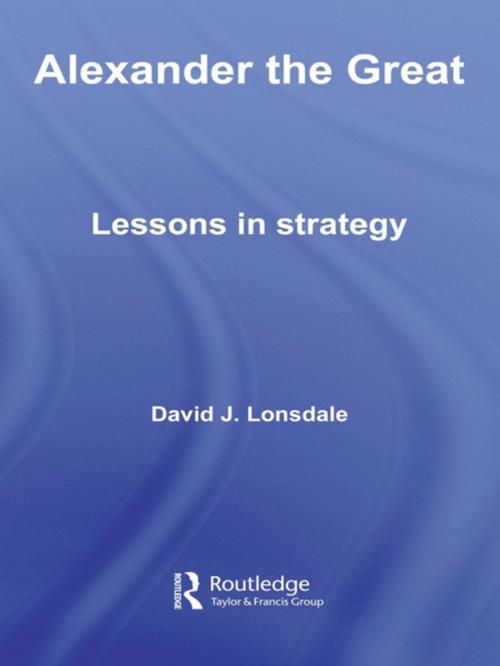| Author: | David J. Lonsdale | ISBN: | 9781134244829 |
| Publisher: | Taylor and Francis | Publication: | December 10, 2007 |
| Imprint: | Routledge | Language: | English |
| Author: | David J. Lonsdale |
| ISBN: | 9781134244829 |
| Publisher: | Taylor and Francis |
| Publication: | December 10, 2007 |
| Imprint: | Routledge |
| Language: | English |
This book offers a strategic analysis of one of the most outstanding military careers in history, identifying the most pertinent strategic lessons from the campaigns of Alexander the Great.
David Lonsdale argues that since the core principles of strategy are eternal, the study and analysis of historical examples have value to the modern theorist and practitioner. Furthermore, as strategy is so complex and challenging, the remarkable career of Alexander provides the ideal opportunity to understand best practice in strategy, as he achieved outstanding and continuous success across the spectrum of warfare, in a variety of circumstances and environments. This book presents the thirteen most pertinent lessons that can be learned from his campaigns, dividing them into three categories: grand strategy, military operations, and use of force. Each of these categories provides lessons pertinent to the modern strategic environment. Ultimately, however, the book argues that the dominant factor in his success was Alexander himself, and that it was his own characteristics as a strategist that allowed him to overcome the complexities of strategy and achieve his expansive goals.
This book offers a strategic analysis of one of the most outstanding military careers in history, identifying the most pertinent strategic lessons from the campaigns of Alexander the Great.
David Lonsdale argues that since the core principles of strategy are eternal, the study and analysis of historical examples have value to the modern theorist and practitioner. Furthermore, as strategy is so complex and challenging, the remarkable career of Alexander provides the ideal opportunity to understand best practice in strategy, as he achieved outstanding and continuous success across the spectrum of warfare, in a variety of circumstances and environments. This book presents the thirteen most pertinent lessons that can be learned from his campaigns, dividing them into three categories: grand strategy, military operations, and use of force. Each of these categories provides lessons pertinent to the modern strategic environment. Ultimately, however, the book argues that the dominant factor in his success was Alexander himself, and that it was his own characteristics as a strategist that allowed him to overcome the complexities of strategy and achieve his expansive goals.















